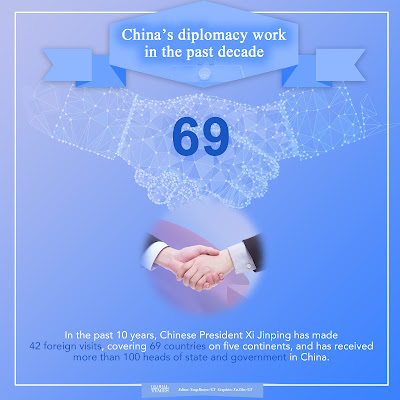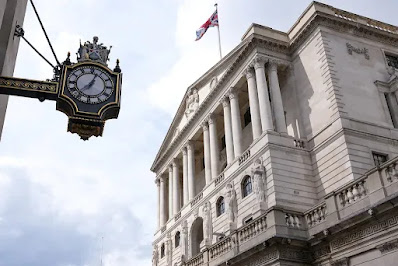Britain’s Gamble on Tax Cuts Has Economists Warning of Past Mistakes
Liz Truss, Britain’s new prime minister, defended her plan in the face of stiff criticism from the International Monetary Fund and others.
Liz Truss, Britain’s new prime minister, has staked her fledgling government on a once-in-a-generation package of tax cuts and deregulation meant to energize the economy.
By Jim Tankersley
Sept. 29, 2022 6:22 p.m. ET
A stunning rebuke from the International Monetary Fund this week underscored one of the biggest risks of the new British government’s plan to slash taxes on high earners: It could exacerbate rapid inflation and destabilize markets at a precarious economic moment.
The alarm from economists, central bankers, investors and top U.S. officials centered on the likelihood that the tax cuts could stoke consumer demand by giving people more money to spend, pushing crushingly high prices even higher. That would put the British government in direct conflict with aggressive efforts of the central banks around the globe — and in the United Kingdom — that are raising interest rates in a bid to bring inflation under control.
Many economists say British officials are also ignoring the lessons of the most recent bout of tax cuts — those engineered in the United States by former President Donald J. Trump. Empirical research on the early results of those cuts suggests that they mostly helped the economy by temporarily increasing consumer demand, an outcome that could prove particularly damaging in the high-inflation environment that Britain and much of the world are experiencing.
Liz Truss, Britain’s new prime minister, has staked her fledgling government on a generationally large package of tax cuts and deregulation meant to energize the economy. It includes a cut in rates for the country’s lowest income tax bracket — and, in what was a surprise move, a five-percentage-point cut in the country’s top income tax rate, which applies to those earning more than 150,000 pounds, or about $164,000, a year.
In a series of interviews with BBC stations on Thursday, Ms. Truss defended her plan, insisting that it was the right course of action despite the severe blowback.
“We had to take urgent action to get our economy growing, get Britain moving and also deal with inflation,” Ms. Truss said during the conversations. “We won’t see the growth come through overnight, but what’s important is that we’re putting this country on a better trajectory in the long term.”
Investors, who have recoiled from the plan, continued to express deep concern on Thursday. In the United States, the S&P 500 fell 2.1 percent, its sharpest daily drop in over two weeks, as fears of a global recession grew. Shares in Europe, government bonds and oil prices were all down. While the pound regained some of the value it lost over the last week, bond yields rose further.
The International Monetary Fund responded to Britain’s proposals with the sort of pointed criticism it typically reserves for an emerging-market economy, not for the economy of one of the wealthiest nations in the world.
“Given elevated inflation pressures in many countries, including the U.K., we do not recommend large and untargeted fiscal packages at this juncture, as it is important that fiscal policy does not work at cross purposes to monetary policy,” the I.M.F. said in a news release on Tuesday.
The statement noted that the tax cuts would most likely increase economic inequality, and it urged the British government to “provide support that is more targeted and re-evaluate the tax measures, especially those that benefit high income earners.”
Rising Inflation in Britain
Inflation Slows Slightly: Consumer prices are still rising at about the fastest pace in 40 years, despite a small drop to 9.9 percent in August.
Interest Rates: On Sept. 22, the Bank of England raised its key rate by another half a percentage point, to 2.25 percent, as it tries to keep high inflation from becoming embedded in the nation’s economy.
Energy Bills to Soar: Gas and electric charges for most British households are set to rise 80 percent this fall, further squeezing consumers and stoking inflation.
Investor Worries: The financial markets have been grumbling with unease about Britain’s economic outlook. The government plan to freeze energy bills and cut taxes is not easing concerns.
Ms. Truss is not the first conservative politician in recent years to come into office promising to slash taxes. Mr. Trump also campaigned on — and ultimately delivered — “massive tax cuts” in 2017, a package that only Republican lawmakers backed. Decades ago, President Ronald Reagan and Prime Minister Margaret Thatcher of Britain both pursued tax-cutting agendas that cemented their legacies in office.
Ms. Truss has been cheered on by conservative champions of supply-side economics in the United States, including many of the chief backers of Mr. Trump’s tax cuts. Stephen Moore, who served as an outside economic adviser to the former president, praised Ms. Truss for her willingness “to challenge the reigning orthodoxy by sharply cutting taxes to boost growth,” calling the package “a gutsy and sound policy decision.”
“By far the most important change is the reduction in the top income tax rate from 45 percent to 40 percent,” Mr. Moore wrote. “This will bring jobs, capital and businesses back to the U.K.”
A host of critics, though, have lined up to denounce the tax package, warning it will provoke economic war with the Bank of England and risk a damaging combination of economic contraction and soaring prices, which could in turn hurt the global recovery.
The impact of previous tax cuts, including those signed into law by Mr. Trump in 2017, provides fodder for those critiques.
Much as Ms. Truss has proposed to do, Mr. Trump reduced tax rates for income earners across the spectrum, including those in the highest bracket. He also cut a variety of business tax rates — a contrast with the British plan, which cancels a planned increase in corporate taxes. Mr. Trump said his full package of cuts would jump-start economic activity by encouraging businesses to invest, hire and raise wages.
Yet initial evidence, which includes studies from I.M.F. economists, suggests Mr. Trump’s cuts did not deliver the steep gains in investment and productivity that conservatives had promised. If such gains came to pass in Britain, they could help counter inflation there.
Instead, the cuts increased consumer spending, an outcome that helped temporarily expand growth in the United States, the I.M.F. found, but which could be dangerous in a high-inflation environment.
“The record through 2019 from the Trump tax cuts is not encouraging for the U.K.,” said William G. Gale, a co-director of the Urban-Brookings Tax Policy Center in Washington.
Last year, Mr. Gale and a colleague, Claire Haldeman, published a study on the effects of Mr. Trump’s tax cuts up until the start of the pandemic recession. They looked for supply-side effects — whether the cuts increased investment incentives and other means of stimulating sustained economic growth — and found little evidence of such results.
Instead, they found that the cuts did little to promote job growth or investment outside the oil and gas sector, which is highly correlated with the global price of fossil fuels. And they found that the cuts significantly reduced federal tax revenues, contrary to Republicans’ promises that the cuts would pay for themselves by inciting additional economic growth.
Broader research suggests that Ms. Truss’s cuts for top earners are unlikely to drive significant gains in economic growth. In a recent study of decades of tax changes, Owen Zidar, an economist at Princeton, found that cuts for the top 10 percent of earners did little to prompt job gains.
The hope that cuts in Britain’s top rate will supercharge the economy, Mr. Zidar said in an interview, “is completely at odds with the empirical record of the United States since 1950.”
Mr. Gale, Mr. Zidar and other economists joined the I.M.F. in noting a particular challenge for the British tax cuts: the likelihood that they will be offset by interest rate increases from the Bank of England, as it seeks to bring down price growth.
Other rounds of tax cuts, like those under Mr. Reagan, helped to increase growth by working in tandem with interest rate cuts taken by the Federal Reserve, according to economists who specialize in tax policy. In Britain’s case, the opposite appears to be true: The Bank of England has already been raising rates, and it appears ready to push them even higher to offset the effects of Ms. Truss’s policies. Those rate increases would negate a major goal of the tax cuts — to make it cheaper for companies to invest — by raising the costs of borrowing across the economy.
Economists say faster rate increases also heighten the risk of recession in Britain.
Supporters of the British tax cuts are already accusing the central bank of crippling them — much as Mr. Trump accused the Fed of undermining his tax cuts when it raised interest rates repeatedly after they were enacted.
“It hasn’t helped that the Bank of England has launched a public campaign to sabotage the Truss agenda,” Mr. Moore wrote this week, echoing comments he made about the Fed in 2019.
The actions of the British government could reverberate far beyond that country’s borders given the flows of international trade and the potential for a far-flung financial crisis. In recent days, President Biden has grown more concerned with the situation in Britain. On Wednesday, he met with members of his economic team to discuss developments in global financial markets, instructing them to brief him regularly on the situation.
“We’re watching this very closely,” Jared Bernstein, a member of the White House’s Council of Economic Advisers, said on Wednesday at the Peterson Institute for International Economics. “The president’s being kept up on all the developments.”
When asked about the cuts this week, the White House press secretary, Karine Jean-Pierre, said the administration would leave British policy to Ms. Truss’s government. But other administration officials have criticized the plan.
Speaking at an event at the Brookings Institution on Wednesday, Gina Raimondo, the secretary of commerce, said Britain’s combination of cutting taxes and increasing spending would neither help the country fight inflation in the short term nor send it in the direction of long-term growth.
“Investors, businesspeople want to see world leaders taking inflation very seriously, and it’s hard to see that out of this new government,” she said, adding, “We’re pursuing a different strategy.”
Ana Swanson contributed reporting.
Jim Tankersley is a White House correspondent with a focus on economic policy. He has written for more than a decade in Washington about the decline of opportunity for American workers, and is the author of "The Riches of This Land: The Untold, True Story of America's Middle Class." @jimtankersley

















